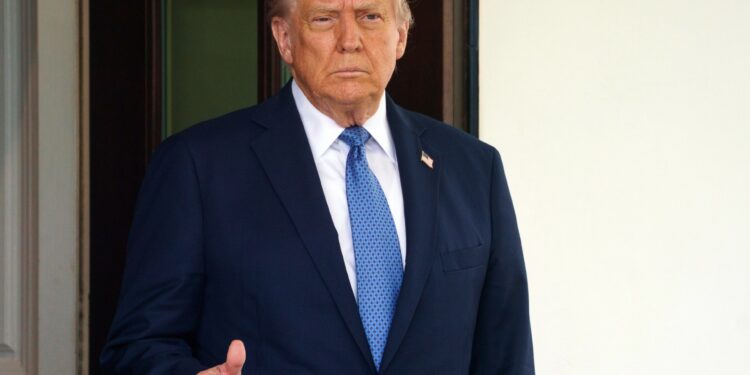In a sudden decline, US President Donald Trump announced his willingness to “large reduction” of the customs fees he imposed on Chinese imports, which reached a total rate of 145%, in a transformation that reflects the political and economic pressures that Washington is exposed to due to market turmoil and the increasing warnings of high prices.
This position came after a meeting held by Trump with executives from major intercourse companies such as “Walmart” and “Home Depot”, who warned that the continuation of high taxes on imports would disrupt supply chains and high prices on the US consumer. This meeting had followed weeks of sharp fluctuations in the markets, as investors went to liquidate their American investments.
Conflicted signals
At the same time, informed sources told Bloomberg that the Chinese government is studying the suspension of the 85% reprisal fees imposed on some American goods, in a move that might represent the beginning of the ease of trade tension.
However, this optimism collided with an official exile from a spokesman for the Chinese Ministry of Commerce, Yadong, who stated that there was no progress in the bilateral talks.
On the other hand, Trump later announced that “a meeting was held this morning (Friday) with China”, refusing to disclose the names of the participants by saying, “It does not matter who they are. We may announce them later, but the meeting happened this morning.”
The recent data showed that the customs exchanged customs between the two sides have reached its climax since the beginning of the year 2025, as China imposed taxes ranging between 10% and 15% on American imports, while Washington raised the fees to 145% in some cases.
Internal and external pressures that return accounts
Christopher Wald, a member of the Federal Reserve, said that the resumption of the application of high fees may push American companies to lay off more employees, stressing that it will support the reduction of interest rates if unemployment rates rise.
For his part, Canadian Prime Minister Mark Carne pointed out that his country “is not obliged to conclude a deal in the short term,” adding, “We will conclude the right deal, not the quick deal”, in confirmation of the increasing frequency in responding to Washington’s demands.
As for Arthur Craper, research manager at Gavical Dragonmex Company, he commented on the American position, saying, “Signs coming from the White House an hour appear an hour that they are in a state of actual decline.” “Washington has begun to realize the need to enter into real negotiations with Beijing, and the question now is when, and how these negotiations will be,” he added.
In light of this reality, the White House seeks to achieve a breakthrough in negotiations with China to justify its harsh trade policy, while countries such as India, Norway and Switzerland are looking to negotiate partial agreements to alleviate the escalation and protect its economic interests.


